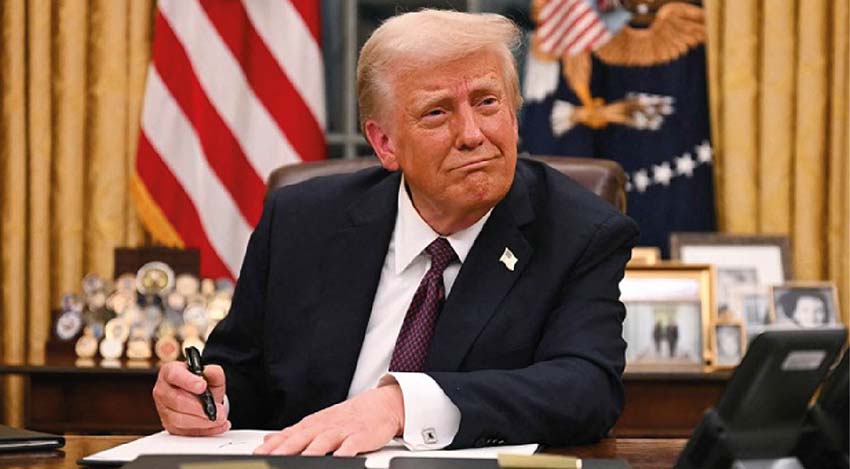Suspension of U.S. foreign aid raises concerns in Bangladesh as well. The decision by U.S. President Donald Trump to suspend foreign aid could directly impact Bangladesh. On Monday night, the day he was sworn in for a second term, Trump suspended U.S. foreign assistance for 90 days.
Suspension of U.S. foreign: Development partners and experts have expressed concerns, stating that this decision will have negative repercussions not only for Bangladesh but also globally. Uncertainty looms over the future of various U.S.-funded projects in Bangladesh.
According to the USAID website, the U.S. has maintained a strong friendship with Bangladesh since its independence. The U.S. recognizes Bangladesh as a strategic partner in South Asia, and their partnership is shaped by shared interests.
USAID data reveals that its programs in Bangladesh are among the largest in Asia, covering critical areas like food security, health, democracy, governance, basic education, and environmental issues.
The U.S. also plays a significant role in addressing the Rohingya crisis, managing large-scale humanitarian assistance programs in Bangladesh. Since 2017, the U.S. has provided over $2.5 billion in aid for the crisis, with $2.1 billion allocated for the Rohingyas and host communities in Bangladesh.
Apart from USAID, U.S. support to Bangladesh extends through the State Department, the Department of Agriculture, the Department of Justice, and the Federal Trade Commission. In 2023, the U.S. provided $490 million (approximately 6,000 crore Bangladeshi taka) in assistance, with a similar amount planned for 2024.
An executive order published on the White House website stated that the U.S. will reevaluate and realign its foreign aid to align with American interests and values. The executive order claims that some foreign aid contradicts American values and disrupts global peace.
The order further asserts that U.S. foreign assistance not aligned with the President’s foreign policy will cease. A 90-day suspension is imposed for reevaluating the effectiveness of ongoing aid programs. Relevant agencies must comply immediately and collaborate with the Secretary of State to decide whether to continue, amend, or terminate foreign aid programs.
The Director of the Association of Development Agencies in Bangladesh (ADAB), A.K.M. Jasim Uddin, remarked, “Organizations like USAID are major donors. We need more clarity on how President Trump’s decision will be implemented.”
Bangladesh is closely monitoring Trump’s policies and their execution. Reports suggest that the suspension includes the U.S. withdrawing from the World Health Organization (WHO), where it has been a major financial contributor. This move could weaken WHO, with global repercussions, including on Bangladesh.
In a statement, U.S. Secretary of State Marco Rubio reiterated Trump’s directive to prioritize national interests in foreign policy. He emphasized that every dollar spent, every fund allocated, and every policy implemented must answer three questions:
Does it make the U.S. safer?
Does it make the U.S. stronger?
Does it make the U.S. more prosperous?
Rubio added, “To advance our national interests, we will build a more innovative, agile, and focused State Department, which requires re-prioritizing, de-emphasizing certain matters, and eliminating outdated practices.”
Suspension of U.S. foreign… Suspension of U.S. foreign.. Suspension of U.S. foreign..Suspension of U.S. foreign..


